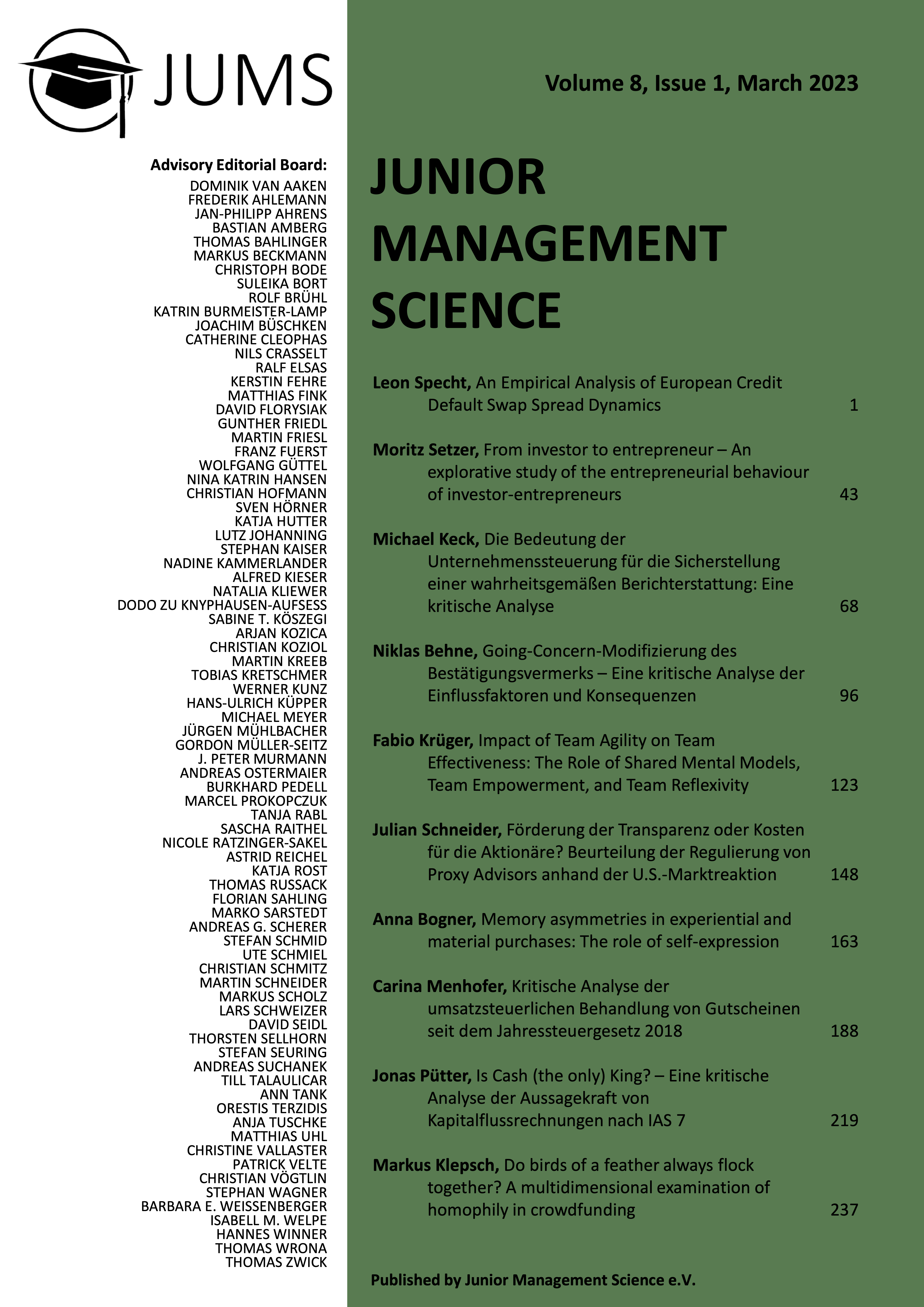Abstract
The auditor’s assessment and reporting of significant uncertainties regarding the going concern is an important source of information for the stakeholder of an entity. Therefore, this paper analyzes and evaluates the determinants that lead to the so-called going-concern-opinion (GCO) as well as the consequences of a GCO for the company and the auditor. The results indicate that it is more likely for a company to receive a GCO when it is in a weaker economic situation, has a more independent audit committee and has an effective internal control. For companies, the GCO results in a negative market reaction and worse lending conditions. Furthermore, after a GCO an auditor switching is more likely, and the auditor receives less audit fees. In the case of an erroneously omitted GCO the auditor is confronted with the risk of litigation and the loss of his reputation. This systematic overview can be used as basic for regulatory efforts and educate the practice about potential consequences of a GCO.
Keywords: Continuation of the company; Going-Concern-Opinion; Auditor’s report; Financial statement audit.

This work is licensed under a Creative Commons Attribution 4.0 International License.

